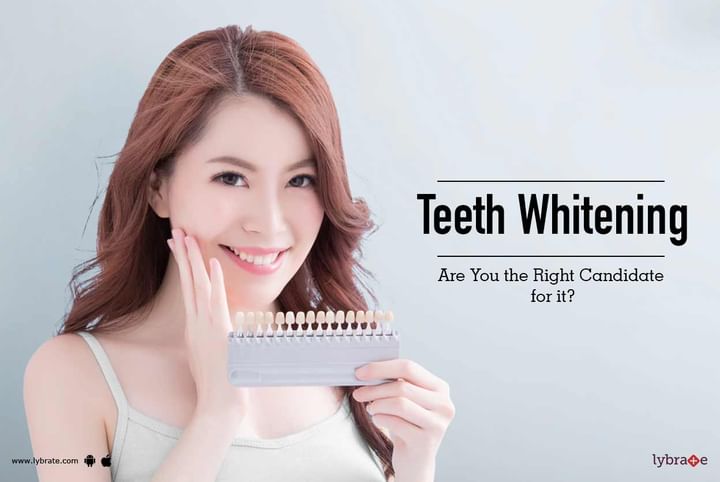Teeth Whitening - Are You the Right Candidate for it?
If we think about what attracts us to a person in general, the first thing that we can think of is a great, warm smile. A good set of well-aligned white teeth is an important aspect of this great smile. However, white teeth remain an elusive thing for most of us. Some of the common reasons for discolored teeth are as below.
- Ageing
- Hypo mineralized tooth structure
- Fluourosis
- Food habits
- Tobacco smoking/chewing (learn more for Smoking Effect on Teeth)
- Side effects of medication (tetracyclines, for instance)
The degree of discoloration varies widely and also is hereditary. Whatever the reasons, there is the option of tooth whitening, which is effective with optimal oral health and good oral hygiene habits. Tooth whitening is not for everybody though, the following are the definite contraindications.
- Teeth with fillings: The bleaching agents work best on natural tooth structure. Whether it is a crown or a veneer or a bridge, the bleaching agent will not work on these tooth-colored fillings and composite resins. On the contrary, using bleaching agent on a tooth filling can produce uneven whitening. The teeth without fillings will appear lighter than those with fillings. If the person has discoloration due to fluorosis or any other reason, then it is ideal to complete any pending restorative work before initiating tooth whitening procedure. This should be allowed to settle in for about 2 weeks. After that, whitening should be undertaken which will ensure the best results and match with the composite filling/veneer/crowns. In people with multiple restorations, whitening can result in uneven coloration of the teeth and so veneers or crowns would be better suited than whitening.
- Sensitive teeth: Sensitivity is an indication that the dentin is exposed or is covered by a very thin layer of enamel. Whitening agents will not work very well in these cases.
- Poor oral health (gingivitis, worn enamel, cavities, and root decay): The whitening agent can irritate the gums or penetrate the existing decay or worn enamel leading to sensitivity. The tooth whitening agent works on the enamel, and as the tooth surfaces do not have enamel, they do not produce a whitening effect.
- Age: Hydrogen peroxide which is the most common bleaching agent is not safe for use in children below 16 years of age. The pulp chambers are quite high and the tooth is still forming, so bleaching agents are not to be used.
While choosing to go for tooth whitening, one thing to bear in mind is that it is not a permanent solution to discolored teeth and might require repetition of the treatment. Having a detailed discussion will help set realistic expectations and achieve optimal results.



+1.svg)
